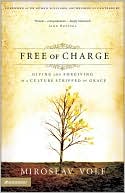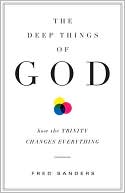For although they knew God, they did not honor him as God or give thanks to him, but they became futile in their thinking, and their foolish hearts were darkened. 22 Claiming to be wise, they became fools, 23 and exchanged the glory of the immortal God for images resembling mortal man and birds and animals and creeping things (Romans 1:21-23).
“Although they knew God.” Many of the leading minds over the last several decades have predicted that as modern people get a better grasp of the world through science and technology that belief in God will dwindle. The obvious assumption behind this claim is that belief in God is a mere crutch to make sense of the unpredictable and unknowable. Once those unknowables are explained by science and harnessed by technology, there will be no need for the crutch. But the theory has not panned out. In fact, many scholars have noted that this is one of the most “spiritual” generations in American history. Poles indicate that the vast majority of Americans have faith in some god. So why is belief in God so difficult to budge? In this verse, Paul offers a different theory, a much more radical theory. Belief in the divine lingers on because it is deeply woven into the consciousness of all people.
“They did not honor him or give thanks to him.” The problem with humanity, says Paul, is not an information problem. It is a heart problem. I remember having a conversation once with a friend who at the time was uncertain about the existence of God. We had some pretty deep discussions, and one day I was asking him about the reality of death. “How would you feel if you found out you were going to die tomorrow,” I asked. He responded, “I think I would be thankful for my life.” I interrupted, “Thankful to who." I wasn't trying to be smart, but the question begged answering. We all walk through our days either thankful or not so thankful. But in either case, the question is same. “Thankful to who?” “Angry with who?” “Treated unfairly by whom?” You can’t escape the sensus divinitatis(sense of the divine). So why aren’t we asking that question? The problem isn’t the head. It’s the heart.
“They became futile in their thinking, and their foolish hearts were darkened.” Failure to give God his rightful position has massive systemic effects upon humanity. You cannot understand your life, your meaning, your responsibilities, your value, your purpose, nor the value, meaning, purpose of the world around you. Belief in God or lack of it is the rock upon which your entire life is built.
“Claiming to be wise, they became fools.” Enter into almost any higher education institution and suggest that you believe in the supernatural, and you are certain to be greeted with snickers if not outright guffaws. The “wise,” the “informed,” the “intelligent” would never give themselves over to a belief in God anymore than they would to belief in the tooth fairy. Proponents of this position often think themselves to have a very new approach to the question of God. Paul, writing two thousand years ago, says this is always the way. Men believe rejecting the true God is the wise and informed thing to do. If there is no God, they are indeed wise. But if they are wrong, there cannot be bigger fools.









No comments:
Post a Comment